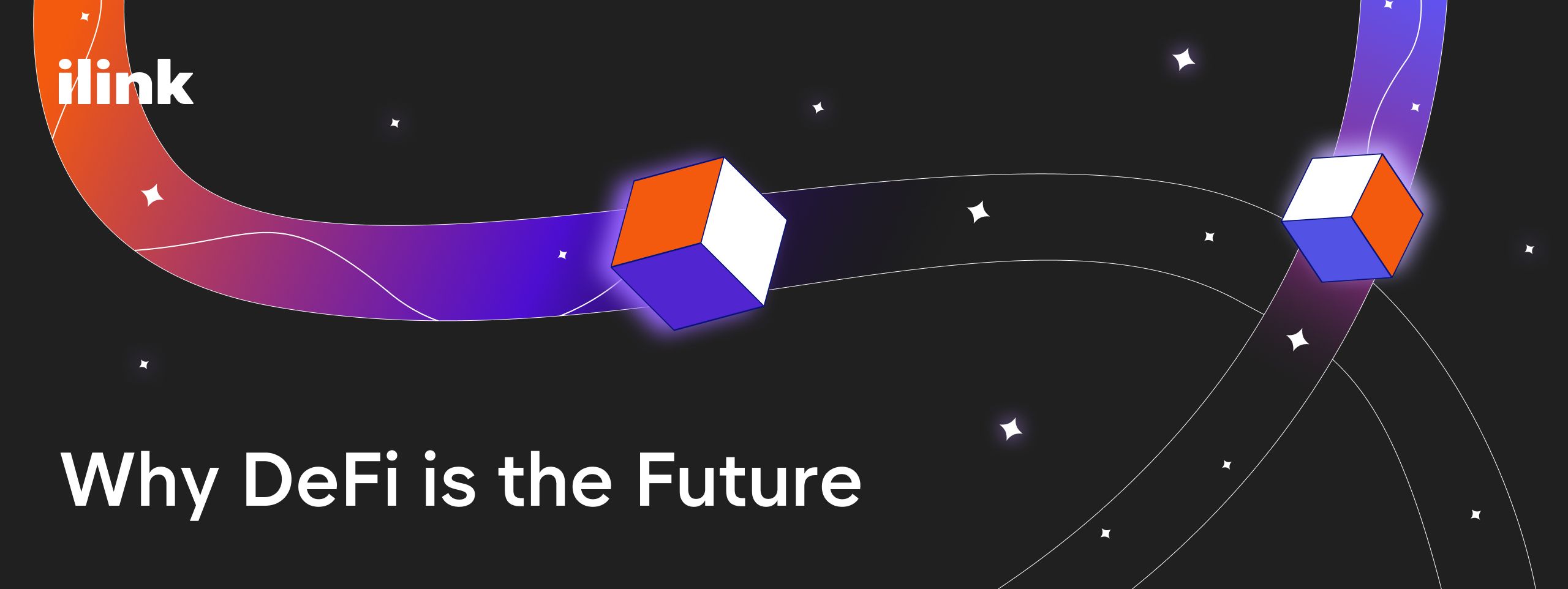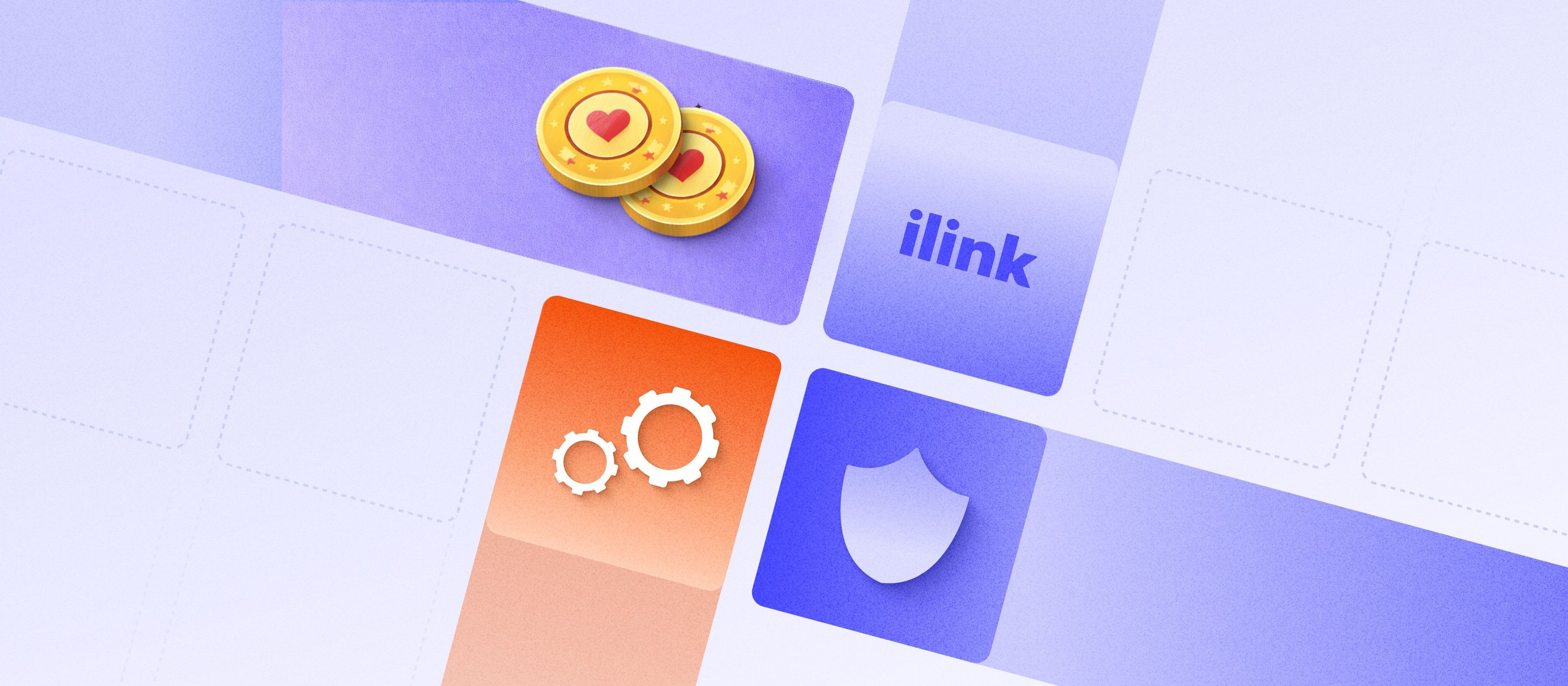Improving Business with DeFi Solutions
DeFi Is Open to Everyone
DeFi, or Decentralized Finance, is like digital money and banking that works on the Internet without traditional banks. It uses special computer programs to do things like lending, borrowing, and trading. DeFi is open to everyone with an internet connection, changing how people and businesses handle money online. In an era where digital innovation is reshaping industries, businesses are constantly looking for solutions that can give them a competitive edge. Decentralized Finance has emerged as a powerful driver in the world of finance. Let's explore why businesses need DeFi and how it can revolutionize operations and growth.
DeFi And Traditional Banking
Before we dive into why DeFi matters for businesses, it's essential to understand the fundamental differences between DeFi and traditional banking.
- Traditional banking or CeFi relies heavily on centralized intermediaries like banks and financial institutions. These intermediaries control the flow of funds, impose fees, and have limited accessibility, which can be limiting for businesses.
- In contrast, DeFi operates on blockchain technology, enabling peer-to-peer transactions, smart contracts (how smart-contracts work), and decentralized platforms. This shift toward decentralization is why DeFi matters and why it is the future of finance.
Benefits of DeFi for Enterprises and Businesses
- Decentralization: One of the primary reasons why DeFi matters is its decentralized nature. It eliminates the need for intermediaries, allowing businesses to engage directly with their customers, suppliers, and partners. This reduces the risk of fraud and censorship and increases transaction transparency and trust.
- Cost-effective: DeFi solutions often incur lower transaction fees than traditional financial services. Businesses can save significantly on cross-border payments, currency conversions, and transaction processing costs, making it a cost-effective choice.
- Accessibility: DeFi is accessible to anyone with an internet connection and a digital wallet, breaking down barriers to entry for businesses operating in underserved regions or emerging markets. This accessibility opens up new avenues for expansion and customer outreach.
Read also: Types of Crypto Wallets
- Customizability: DeFi platforms offer a high degree of customizability. Businesses can tailor financial products and services to their specific needs, whether creating a unique token for loyalty programs or designing smart contracts for supply chain management.
- Smart contracts: Smart contracts are self-executing agreements with predefined rules. They automate various business processes, such as payment settlements, reducing the need for manual intervention and streamlining operations.
Harness the monumental advantages of decentralized finance (DeFi) with ilink company, where innovation meets expertise. Our offerings range from developing robust decentralized applications to impeccable wallets and intricate DeFi integrations, each designed to give your business a remarkable edge in the financial ecosystem.
Why DeFi Is the Future

DeFi's ability to democratize finance and provide innovative solutions to age-old problems is why it is widely regarded as the future of the financial industry. It's not just about offering an alternative to traditional banking; it's about reshaping the entire financial landscape.
Let's delve deeper into why DeFi is considered the future of finance, supported by a couple of examples:
- Financial inclusion.
DeFi is on a mission to bring financial services to everyone, regardless of location or socioeconomic status. Traditional banking often excludes billions of unbanked or underbanked individuals worldwide. DeFi's accessibility through the Internet and minimal entry barriers mean that anyone with a smartphone and an Internet connection can access a wide range of financial services.
Example: In countries with limited access to banking, such as parts of Africa or Southeast Asia, DeFi lending platforms can provide microloans to small business owners, farmers, or individuals without requiring them to visit a physical bank branch.
- Eliminating intermediaries.
DeFi operates on blockchain technology, which enables peer-to-peer transactions without intermediaries. This reduces costs and eliminates the need for trust in third-party institutions. Smart contracts, self-executing agreements on the blockchain, automate various financial processes, removing the need for intermediaries like banks or escrow services.
Example: In real estate, DeFi platforms enable property transactions without the involvement of a traditional title company. Smart contracts automatically transfer ownership and funds when predefined conditions are met, reducing time and costs.
- 24/7 availability.
Unlike traditional financial institutions with working hours and holidays, DeFi operates 24/7. This global availability means that users can access and transact in DeFi markets anytime, which is particularly valuable for international businesses and traders.
Example: Traders can trade cryptocurrency on DeFi decentralized exchanges (DEXs) around the clock, taking advantage of price fluctuations in digital asset markets regardless of their geographical location.
- Innovation and customizability.
DeFi platforms encourage innovation by allowing developers to build and customize financial products and services. This flexibility fosters competition and results in the rapid development of new DeFi protocols and applications, offering users various options.
Example: DeFi protocols for non-fungible tokens (NFTs) have enabled artists, musicians, and creators to sell their digital art and content directly to consumers, cutting out traditional mediators and gaining more control over their revenue streams.
- Global accessibility.
DeFi transcends borders, making it a global financial ecosystem. Users can access DeFi services anywhere in the world, facilitating cross-border payments, investments, and lending opportunities.
Example: A small business in Europe can obtain a loan from a DeFi lending platform based in Asia without navigating complex international banking systems or paying high currency conversion fees.
As the DeFi ecosystem continues to evolve and mature, it has the potential to reshape the way we conduct financial transactions, manage assets, and access financial services on a global scale.
Embrace the future with confidence by entrusting your DeFi development to a team of consummate professionals. ilink formidable IT specialists leverage modern technologies combined with profound knowledge of diverse programming languages to ensure that your DeFi development journey is seamless, innovative, and exceedingly proficient.
How Can Banks Benefit from DeFi?
Banks can benefit from DeFi in several ways, primarily by leveraging its innovative technology and services to enhance their own operations and offerings. Here's how banks can benefit from DeFi, illustrated with an example:
- Cost reduction.
DeFi can help banks significantly reduce operational costs. For instance, by using blockchain technology for cross-border payments, banks can eliminate the need for multiple intermediaries and reduce transaction fees. This cost-saving can be passed on to customers or improve the bank's profitability.
Example: A traditional bank may charge customers $30 for an international wire transfer. Using a DeFi-powered blockchain solution, the same bank can process the transfer at a fraction of the cost, reducing customer fees to just a few dollars.
- Efficiency and speed.
DeFi enables faster and more efficient settlement of transactions through smart contracts. Banks can automate various processes, such as loan approvals, trade finance, and asset tokenization, which typically require manual paperwork and approval processes.
Example: A bank can implement a smart contract system for loan approvals. When a customer meets the criteria, the smart contract automatically disburses the loan, eliminating the need for lengthy paperwork and approval delays.
- Access to new markets.
DeFi provides a global customer base, including regions with limited access to traditional banking services. Banks can expand their market reach and tap into emerging economies by offering DeFi-based financial products.
Example: A bank based in a developed country can offer digital wallets and DeFi services to customers in a developing nation, providing them access to global financial markets and facilitating cross-border transactions.
In summary, banks can benefit from DeFi by reducing costs, improving efficiency, accessing new markets, diversifying their offerings, and enhancing risk management. By integrating DeFi solutions into their operations, banks can stay competitive in an evolving financial landscape and provide their customers with innovative and cost-effective financial services.
How Do You Benefit from DeFi?
Businesses can benefit from DeFi (Decentralized Finance) in several ways, transforming the way they manage finances and conduct operations. Here's how businesses can benefit from DeFi, illustrated with an example:
-
Access to capital: DeFi lending platforms allow businesses to access capital more efficiently than traditional bank loans. By collateralizing digital assets, businesses can secure loans without lengthy approval processes. Example: A small e-commerce business can use its cryptocurrency holdings as collateral to secure a DeFi loan, enabling it to expand inventory or launch marketing campaigns quickly.
-
Efficient cross-border transactions: DeFi can streamline cross-border payments, reducing transaction costs and settlement times. This is particularly advantageous for businesses engaged in international trade. Example: An export-oriented company can use stablecoins on a DeFi platform to facilitate fast and cost-effective cross-border transactions with its overseas suppliers and customers.
-
Automated finance management: DeFi smart contracts automate financial operations, such as payroll, revenue sharing, and escrow services. This reduces the need for manual intervention and minimizes the risk of errors. Example: A blockchain-based gaming company can use smart contracts to automatically distribute revenue shares to game developers and content creators based on predefined criteria, ensuring transparent and fair compensation.
-
Enhanced liquidity: DeFi liquidity pools and decentralized exchanges provide businesses with access to a more liquid market for their digital assets, allowing for easier trading and cashing out of cryptocurrencies. Example: A software development firm can convert crypto earnings into fiat currency to cover operational costs or pay employees.
-
Customizable financial products: DeFi allows businesses to create and customize financial products that suit their specific needs. This flexibility empowers businesses to design tailored financial solutions. Example: An online marketplace can create a custom loyalty token on a DeFi platform, rewarding frequent shoppers with discounts or exclusive product access.
-
Transparency and auditability: Transactions on DeFi platforms are recorded on a public blockchain, providing transparency and auditability. This can build trust with customers, partners, and investors. Example: A supply chain-focused business can use DeFi to track the provenance of goods through a transparent blockchain ledger, ensuring authenticity and quality for consumers.
Elevate your business's agility, efficiency, and competitive advantage with our DeFi development service, an essential element in the burgeoning digital economy.
What Problem does DeFi Solve?
DeFi addresses issues related to traditional financial systems, such as high transaction fees, limited accessibility, lack of transparency, and the need for intermediaries. It provides an alternative that empowers businesses and individuals while increasing financial inclusivity.
In conclusion, DeFi is not just a buzzword; it's a transformative force that is reshaping the financial landscape. Its decentralization, cost-effectiveness, accessibility, customizability, and smart contracts make it a game-changer for businesses. Even traditional banks can benefit from DeFi's innovative approach. DeFi matters because it offers a glimpse into the future of finance, where financial services are more accessible, efficient, and tailored to individual and business needs.
Comments (0)
Latest Posts
Learn how to build an online casino that scales: games, payment options, compliance basics, risk controls, and operational automation for growth.
Discover how automated AI call centers reduce operational costs, improve customer experience, and increase revenue. Learn about ROI, real statistics, integrations, and scalable AI solutions for modern businesses.
Do You Have any Questions?
Leave your details - we will contact you to answer all your questions




